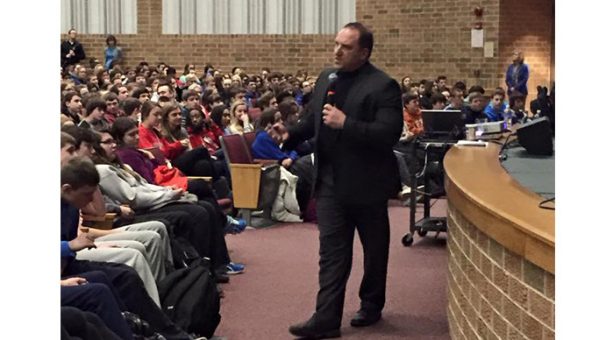
ASKfm’s Internet Safety Month Q&A series has been offering different perspectives on some of the most-talked about issues relating to teens being smart and safe online all month long. With twenty-six years in law enforcement under his belt, Detective Rich Wistocki gives his perspective on how parents, school faculty and law enforcement agencies can apply traditional investigative techniques to address online incidents and how to prevent issues before they even arise.
What is your number one recommendation for parents about their teens being online? And for teens?
For parents it’s twofold: parents need to be responsible for their children AND understand that there’s no such thing as privacy for children. You’re the parent, you pay for their devices and service, and you have every right to see what they are doing online. A lot of times parents have a false notion that they have to respect their teen’s privacy, and that they shouldn’t look at their teen’s phone. But once issues come up, one of the main things I hear parents saying is, “I never thought my kids would do that!” Of course not – you wouldn’t know because you weren’t aware of the things they were doing online. You don’t need to keep a close eye because you have a bad or untrustworthy kid. You have to keep a close eye because others are going to try to get your kids to do what they otherwise wouldn’t have. You need to be responsible for their offline and online life as well.
For teens – it’s the same. Until they’re 18, there shouldn’t be any expectation of complete privacy. If I pay for it, it’s my rules. And start getting them used to this early. Starting with sophomores in high school is too late. They’re already venturing out and exploring on their own by then.
What can schools do before and after an online incident occurs?
Schools today often provide laptops, iPads or other devices to students. They must ensure that all of these devices have the proper security software that both schools AND parents can access to monitor students’ behavior while they’re at school and after they’ve gone home. Spector Software has a great monitoring software which provides this type of reporting to parents.
Schools are definitely behind on addressing online incidents, and we’ve all seen cases where schools haven’t handled online issues appropriately. This new school year will be huge in the State of Illinois – who will now be required to investigate any and all incidents of online bullying. The issue is that they have no training. When I talk to schools about online safety in my trainings, I teach them the basic investigative process. I show them how to “collect evidence” and to put together a proper report – take screen shots both on desktop and mobile devices, record user IDs, write out detailed statements from everyone involved, etc. This will be very helpful if the situation needs to be escalated and also shows those involved that you’re taking the situation seriously.
What are some of the tools you’d recommend for parents to help their teens be safer online?
Really take a hard look at the devices you buy your teens. Some have better monitoring capabilities and apps than others. I like My Mobile Watchdog for the Android which tells you everything your teen does on their phones. TeenSafe.com and WebWatcher are a couple others I’ve personally tested and work very well.
What would you recommend to other law enforcement agencies on how best to work with parents and schools regarding online incidents?
Law enforcement administrations often say they don’t have the resources to train their staff and police on how to properly handle online incidents. But they don’t realize that there are great online resources and trainings that they can take advantage of. There are countless online videos, webinars, interactive trainings that can offer them with more in-depth training as budget and time allow.
 English
English Russian
Russian Italian
Italian French
French Spanish
Spanish German
German Arabic
Arabic